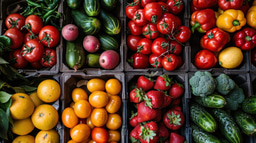Who’s in, and Who’s out? Understanding Exemptions to FSMA 204

Recently, I spoke with a smaller food manufacturer that produces many items listed on the FSMA 204 Food Traceability List (FTL). They asked an important question: “Given our size, are we exempt from the traceability rule?” As with many government regulations, exemptions may apply based on factors like size, sales volume, or other characteristics of a business.
As asked by the client, the regulation outlines several exemptions, and we’ll explore who must comply and who’s exempt under FSMA Rule 204.
1) Companies that don’t produce Food Traceability List (FTL) Items
Companies that don’t produce or handle items on the FTL list are exempt from the rule.
2) US Department of Agriculture (USDA) Exclusive Jurisdiction
Companies that manufacture, process, pack or hold under exclusive jurisdiction of:
- Federal Meat Inspection Act
- The Poultry Products Inspection Act
- Egg Products Inspection Act
3) Specific types of food manufacturers
- That produce items ONLY for their personal consumption.
- Specific farm-to-school/farm-to-institution programs.
- Not-for-profit food manufacturers. (Organizations should review their status to understand if they are exempt from the rule.)
4) Produce that is “rarely consumed raw”
Exemptions include produce like Potatoes, Pumpkins, and Sweet Corn, as defined in the Produce Safety Rule (21 CFR 112.2(a)(1)).
5) Very small food manufacturers and farms
- The rule defines “Very Small Business” as those averaging less than $1,000,000 in annual sales (adjusted for inflation) of human foods.
- Farms that are not covered by 21 CFR part 112.4(a)
- Additional criteria may apply to your specific operation
6) Specific types of warehouses
Facilities that only hold or warehouse food items, but are not party to the transaction of FTL items and are not in the business of food distribution may be exempt from the rule
7) Specific food transporters
Under specific conditions certain food transporters are exempt from rule 204
8) Small Retail Food Establishments (RFEs)
Similar to small manufacturers, exemptions may depend on sales volume, and purchasing arrangements, individual analysis is necessary.
9) Comingled Raw Agricultural Commodities (RAC)
That meet specific requirements, such as co-mingling without further processing, may be exempt from the rule, but additional research on your specific items is required.
10) Fishing Vessels
Exemptions may apply under these conditions:
- Fishing vessels engaged only in harvesting and transport may qualify for exemption.
- Other types of processing on ships (filleting, or freezing for example) may no longer qualify you from exclusion, but other traceability requirements may also apply.
11) Other Exemptions
Additional specialized exceptions may apply depending on the nature of business and how products are handled.
Additional Considerations
1. Customer Requirements
Even if a regulatory exemption applies, your customer may still require compliance. Many upstream supply chain partners are moving toward full traceability, even for non-FTL items, and may mandate that their suppliers meet FSMA Rule 204 standards.
2. Voluntary Compliance
Your organization may choose to comply as a best practice, regardless of whether an exemption applies. There is no restriction against adopting the rule voluntarily.
3. Exemptions Are Not Permanent
Many exemptions, particularly those based on business size or production volume, are subject to change as your company grows. For instance, you may qualify for an exemption this year but be required to comply next year if your business exceeds the size threshold.
4. Importers and International Organizations
International organizations such as food manufacturers, shippers, and distributors must comply with FSMA Rule 204 if they intend to export products to the United States. Foreign businesses that manufacture, process, pack, or hold FTL-listed foods imported into the U.S. are subject to the same standards as domestic organizations unless a specific exemption applies.
If a foreign identity produces FTL listed items but does not intend to import the item to the US, they do not need to comply with this regulation.
Final Considerations
Organizations throughout the food supply chain should thoroughly review the FSMA Rule 204 guidelines and FAQs to determine their exemption status. The FDA provides a helpful tool to assist businesses in evaluating their eligibility for exemptions, available at: FDA Traceability Rule Tool.
By understanding the rule and its exemptions, businesses can ensure they meet regulatory requirements while aligning with customer expectations and industry best practices.
This article was originally posted here.

Please sign in or register for FREE
If you are a registered user on The FSQ Network, please sign in